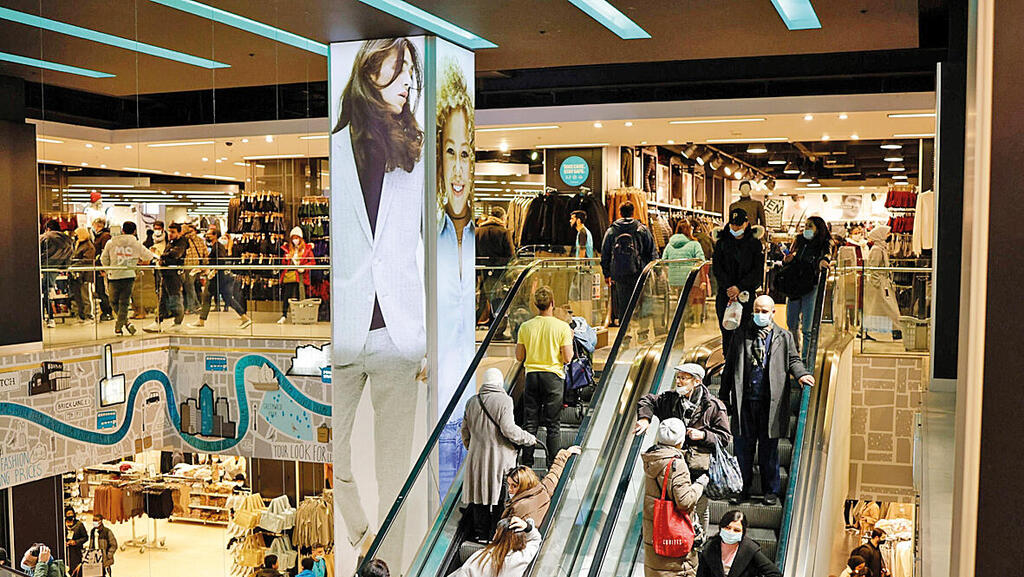
From Tesla to Primark: Houthi attacks disrupt production and inventory
The United States and Britain have increased attacks against rebel targets, but the end of the crisis in the Red Sea is not in sight and companies are facing shipping delays. The result: car manufacturers are reducing production and fast fashion giants fear having empty shelves
The intensity of the attacks by the United States and Great Britain against the Houthi rebels are increasing, but nevertheless it seems that the crisis in the Red Sea is far from over.
The world's leading shipping companies continue to avoid the dangerous route as much as they can, when in normal times it represented over 12% of the volume of global maritime trade. This means that the journey between Asia and Europe, which usually lasts about 35 days, is extended by two weeks, an addition that increases shipping costs, including fuel and insurance. According to a Bloomberg report, at least 2,300 ships have already changed course due to the attacks and are now detouring through the Cape of Good Hope.
Beyond their impact on the shipping industry, the delays in shipments and the high costs also have consequences for other industries. In the last month, a series of companies dependent on maritime shipments warned of a wide range of potential issues, ranging from a lack of various components for production to rising costs and erosion of profit margins. Accordingly, central banks across the world are warning against the renewal of the inflationary cycle, which could lead to the postponement of the interest rate cuts planned for the rest of the year. The affected companies represent a variety of industries, primarily automotive and retail which are considered more vulnerable as a result of bottlenecks created in the supply chain.
Vehicles: Production in factories was frozen
"The auto industry is one of the first to suffer, due to its complex supply chain," Thomas Barnier, of wealth management firm Lazard Freres Gestion in Paris, explained to Reuters. According to a survey of economists conducted by the Bloomberg news agency, the forecast is for a 5% decrease in the revenues of the car manufacturers. Carlos Tavares, CEO of the automotive giant Stellantis, stated in this context that in his estimation, the logistics and shipping companies will raise the shipping prices due to the longer journey. "I am sure that the logistics companies will take advantage of the fact that we are using the ships for a longer period of time to hold a renegotiation on the price." he said.
Tesla was the first company to warn of the expected consequences of the attacks in the Red Sea, and earlier this month announced that it intended to freeze production at its factory in Germany for two weeks. The company stated that the reason for this is delays in receiving shipments. "The armed conflicts in the Red Sea and the associated shifts in transport routes between Europe and Asia via the Cape of Good Hope are also affecting production in Grünheide," Tesla explained. "The significantly longer transport times create a gap in the supply chains." It also added that the factory will close on January 29 and reopen on February 11, due to the lack of components.
Volvo has also taken similar steps, and last week it stopped production at its plant in Belgium for three days, mainly due to delays in transmission shipments caused by the crisis in the Red Sea, according to the company's statement. Another car manufacturer whose operations have gone awry is the Japanese Suzuki, which this month stopped work at its factory in Hungary for a week. On the other hand, the German automobile giant Volkswagen changed the route of its shipments already at the beginning of December, so that according to the company the costs did increase, but it did not encounter any production problems. "Almost all the major shipping companies began rerouting their ships in December already. This will ensure that freight reaches its destination, albeit with a slight delay," the company said.
Fast fashion: Reliant on Asia
The fashion and retail industry is also vulnerable due to its significant reliance on products coming from Asia. This dependence has led to the fact that the British fashion giant Next has already expressed concern about damage to sales. At the beginning of the month, the CEO of the company, Simon Wolfson, warned that if the difficulties in crossing the Suez Canal continue, this year's growth in sales will be negligible, this is because the continued disruptions will lead to a delay of about two and a half weeks in receiving stock in the UK. "This will harm sales growth, because we will have less stock in the country than we would like," he noted. However, he emphasized that the existing inventory levels are 15-17 times higher in advance than the inventory sold each week. "A delay of two weeks means that the inventory levels are not optimal, but the shelves are not yet empty," he said. The shortage will be felt mainly in the most popular items and in certain sizes.
Fast fashion giant Primark, which also relies heavily on sea shipments, reported last week about delivery delays. However, Eoin Tonge, CFO of parent company AB Foods, told Reuters that the company hopes that at this stage customers will not yet notice the shortages on the shelves. "We have a bit of experience of adjusting on our supply chain, so you adjust - you adjust your timings, you adjust your stock flow through the depots and so on," Tonge said. He also noted that the company maintains daily contacts at the senior level with the Maersk shipping company, in order to keep up to date with developments. "We expect to see increased surcharges from Maersk but we’re not incurring them at the moment," he said. At the same time, if the crisis continues until after Easter, which will be celebrated at the end of March, the company intends to advance the execution of its orders. "This means that we will have more goods at sea," he explained.
The Bernstein research company also noted the fast fashion chain H&M as having the potential to be harmed by the extension of shipping routes, since, like Next, it also purchases most of its products in Asia.
Housewares and furniture: damage to the profit margin
The effects of the Houthi attacks are also felt in the British department store chain Marks & Spencer. This month, the chain warned when publishing the quarterly results against delays and higher shipping costs due to the attacks. The company stated that it is estimated that the delays in the deliveries of clothes and household items will be felt mainly in the months of February and March. However, Marks & Spencer does not expect any particular impact on its food divisions.
The difficulties of these companies will probably deepen due to the difficulty of passing on to consumers the increase in shipping costs at a time when households are already experiencing a significant increase in the cost of living. "Companies may be forced to absorb the rate increases, which will hurt their profit margins," Frederique Carrier of wealth management firm RBC told Bloomberg. For example, the CEO of Marks & Spencer Stuart Machin said in a conversation with analysts that the chain does not intend to raise prices anytime soon. "Our plan is to avoid raising the prices of clothes and housewares, despite the increase in certain costs due to the situation in the Red Sea," he said, adding that "It's still too early to decide on the matter." Similarly, Jesper Brodin, CEO of IKEA's parent company, Ingka Group, said at the World Economic Forum in Davos that the Swedish furniture giant continues to stick to its plan to lower prices this year, and this despite the Red Sea crisis that is driving up costs. The company did issue an early warning for supply and delivery disruptions, but according to Brodin, the stores have accumulated sufficient stocks to deal with the security crisis. "The problem for the companies is the uncertainty regarding the arrival date of the goods," Simon Heaney from Drewry Shipping summed up.














